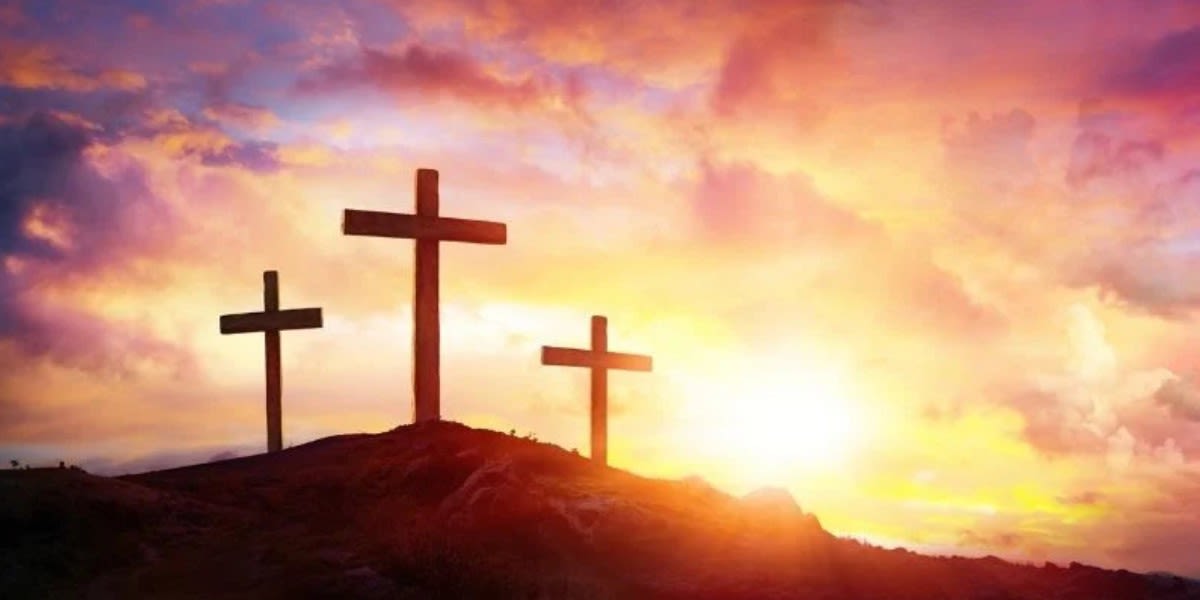As we approach Easter, we are reminded that Jesus’ death and resurrection form the very heart of Christian faith. Yet for some Christians, including many Evangelicals, there is a serious problem at the heart of Christian faith.
I once attended an academic conference in which the main speaker twice asked the question: “Must there be blood?” She was concerned that if atonement requires bloodshed, violence is inevitable: “This is just the way justice works: someone has to lose or suffer.” If this necessity is grounded in an application of divine justice, then human justice will also require violence, and the divine example serves to legitimise all kinds of human violence. She wondered whether the idea of God ‘punishing’ his Son with death might portray a kind of divine child abuse.
Similar questions arise:
- Why must God have a blood sacrifice before he will forgive?
- Is God reluctant to forgive unless “somebody pays”?
- Aren’t we simply to forgive without requirement of some kind of payment?
- Does Jesus’ bloody death implicate God in violence?
- If God solves problems by utilising violence, is it okay for us to do so as well?
These important questions trouble many today, including evangelicals who have been formed with a ‘Penal Substitutionary’ theory of Atonement (PSA). In PSA Jesus is our substitute, suffering our penalty in order that we might be accepted by God. That is, (i) Jesus’ death is a sacrifice for sinners who all stand under God’s impending wrath and judgement; (ii) Jesus’ death assuages God’s wrath, so that as a result, (iii) God now has mercy on those sinners who accept Christ.
Sometimes this understanding of the atonement has been presented in troubling ways, and as we approach Easter this year, it will be good for us to think clearly about the meaning of the death of Jesus on the cross. We must not think in terms of:
- A loving Jesus changing the mind of an angry God.
- A wrath-filled God punishing an innocent victim who deserves better.
- God somehow needing to be bribed—with blood—before he will be nice.
To think in these terms is to undermine the primacy of God’s love as his motive for atonement. The cross is a demonstration of the incomprehensible love of God, as Paul insists in Romans 5:8.
On the other hand, however, we also must avoid thinking of the cross, as though Jesus’ death:
- Does not also include within itself an element of divine justice as well as divine love—God’s judgement on human sin and sinfulness.
- Was merely an act of human violence, demonstrating humanity’s rejection of the love of God displayed to us in Jesus Christ.
- As though Jesus’ death is merely a demonstration of the divine love in which God freely forgives those who murder his son thereby breaking the cycle of violence that has engulfed humanity, or a scapegoat mechanism by which we inflict violence on another, and which therefore presents to us an exemplary image of God’s love which should inspire in us a reciprocal devotion to God and a commitment to love as God has loved.
One problem we confront in debates about the meaning of Jesus’ death is one-sidedness. If some focus so heavily on the divine holiness and wrath that it seems God’s love is eclipsed, others speak so fulsomely of his love that the divine holiness is marginalised or set aside. Kevin Vanhoozer has argued that “God is all that he is—all holy, all loving, all just, all merciful—in all that he does. The cross, as the sum of divine wisdom, displays all the divine perfections.”[1]
One way to consider Jesus’ death on the cross that helps transcend this problem, is to think of it in trinitarian terms. In this view, the eternal God—Father, Son, and Holy Spirit—determines within his own triune being to create—and to be gracious toward—his human creature. Knowing that humanity will fall into sin, death, and self-annihilation, the triune God determines to rescue humanity by the eternal Son becoming the human Son and taking upon himself all the consequences of humanity’s fall.
In this view, “lovingkindness and truth have met together; righteousness and peace have kissed each other” (Psalm 84:10). Both sides of God’s character are preserved. In his holiness God judges sin in Jesus Christ, the sin offering (Romans 8:3). Sin is not winked at or overlooked, nor counted as an insignificant thing. Forgiveness is costly and never cheap. But the judgement and penalty of sin that falls on the human Son is falling on the eternal Son who has become flesh for us. The one God takes the punishment upon himself that it might not fall upon us. “God was in Christ, reconciling the world to himself, not counting their trespasses against them” (2 Corinthians 5:19).
This is sheer gift—not transaction. At the Cross God gives himself that all humanity might be forgiven and share the life of the resurrected Son.
This is more than divine justice but not less than justice. Nor does God demand ‘blood money’ as it were, before he will forgive—the very idea is an abhorrence in the face of this divine self-gift! Nor does God use violence to achieve his ends: he suffers violence, bearing it himself as the inevitable consequence of human sinfulness, and rises victorious over it to inaugurate a new creation in which one day, righteousness and peace will reign.
This is the meaning of Jesus’ death on the cross, the gospel, and our hope. This Easter, let us not lose confidence in what Christ has accomplished at the cross, nor lose hope in what he has achieved and purchased for us—and not for us only, but for all.
[1] Vanhoozer, K.J. “Atonement” in Mapping Modern Theology: A Thematic and Historical Introduction, edited by Bruce L. McCormack and Kelly M. Kapic (Grand Rapids: Eerdmans, 2012), 201.


